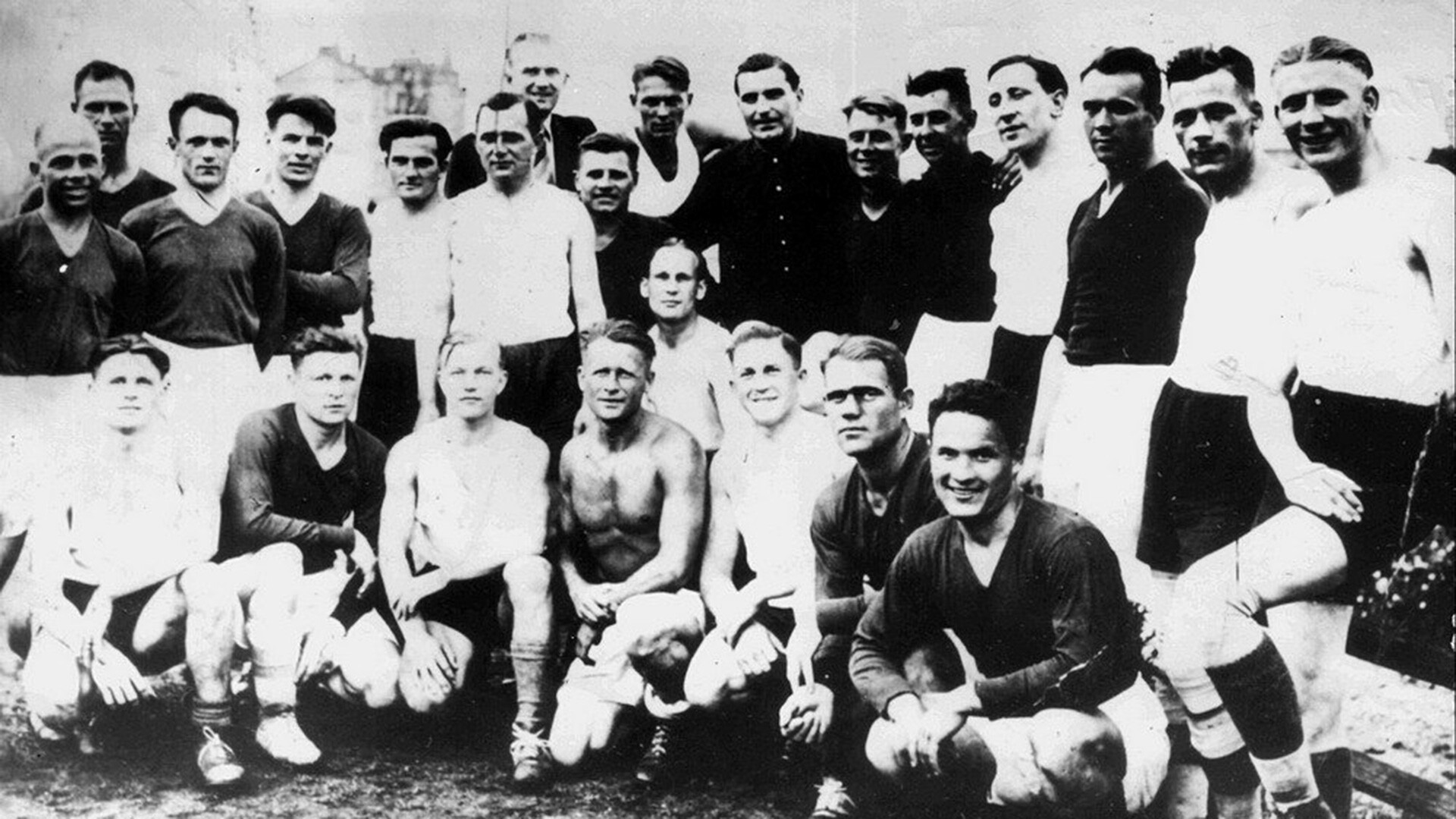
Joint photo of 'Start' and '‘Flakelf' teams.
Archive photoOn August 9,1942, a football match between a team of German airmen and a squad of former F.C. Dynamo Kiev players took place in Nazi-occupied Kiev. The Soviet footballers were told under threat of death to "throw" the game, but they displayed courage and defeated their opponents. However, for their insolence, they were executed.
This was how Soviet propaganda covered the story of this sporting event, which, in the USSR, was dubbed a "deathmatch". The truth, however, turns out to be somewhat different…
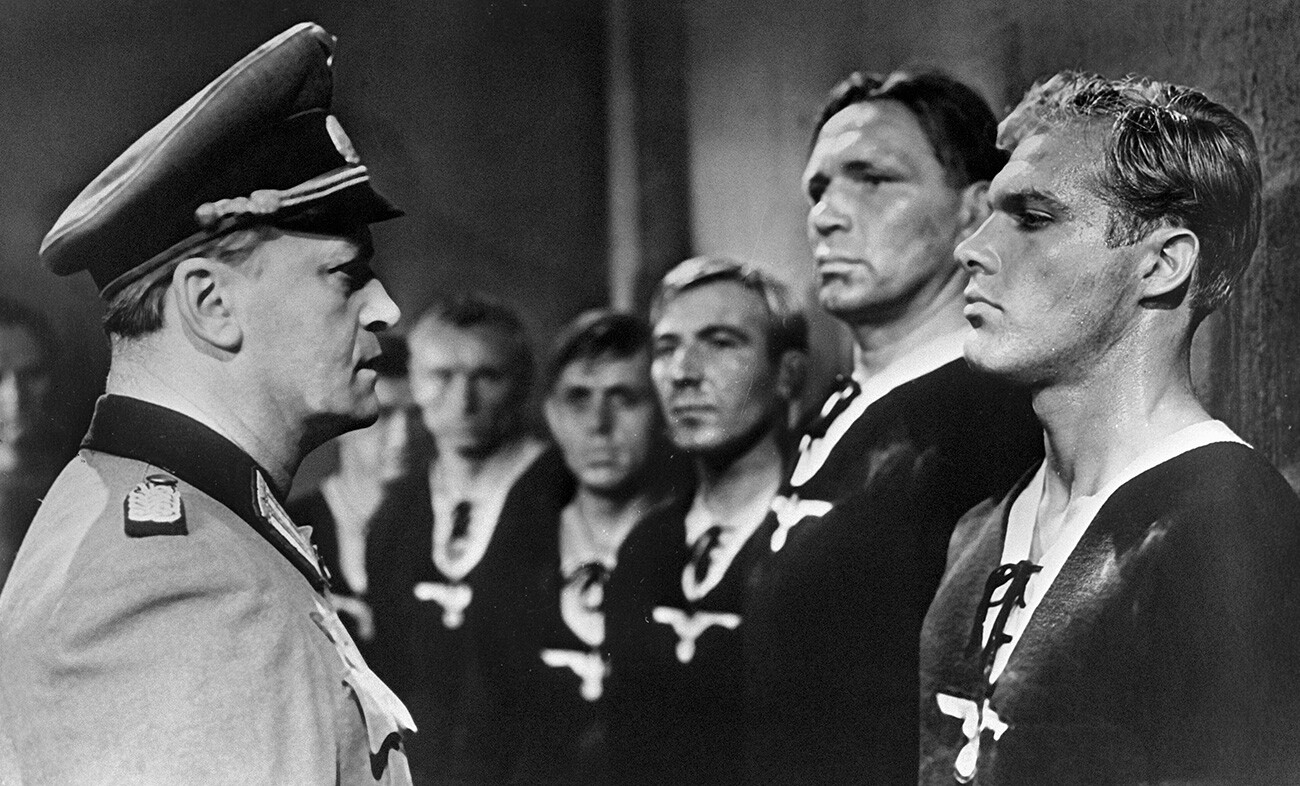
A still from the movie "The Third Half" (1962).
SputnikShortly after the capture of the capital of Soviet Ukraine, the Nazis, at the suggestion of local collaborators, revived sports events with the involvement of local athletes. Their motive was to create a semblance of normal life. The participants in these events also received additional food rations.
One of the football teams was set up at ‘Bakery No. 1’ by its director, a Czech named Josef Kordič. Several former players of F.C. Dynamo Kiev and other football clubs worked at his factory and a number of other athletes were specially brought out of prisoner-of-war camps. ‘F.C. Start’, as the team was named, was brilliant at thrashing its opponents.
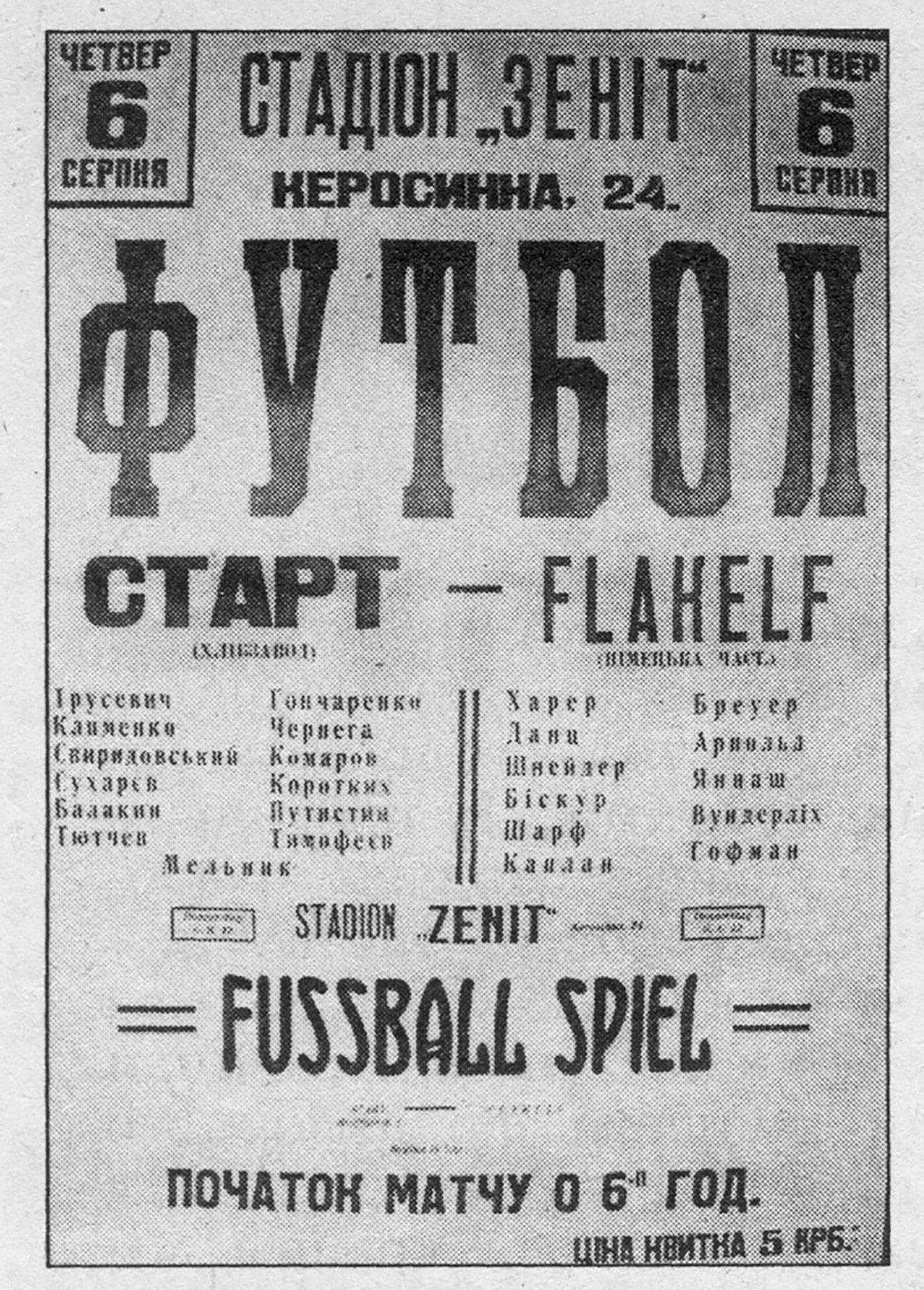
Poster of the match between 'Start' and 'Flakelf'.
Public DomainTeams of German railway workers, German artillerymen and Hungarian infantrymen were all soundly defeated by them. On August 5, 1942, the Soviet footballers defeated the ‘Flakelf’ team of anti-aircraft gunners, airmen and mechanics of Kiev aerodrome with a score of 5:1. A rematch, which was scheduled for Aug. 9, ended up being dubbed the "deathmatch".
"We had the same kit as the USSR national team – red shirts and socks and white shorts," player Makar Goncharenko said later. "All the stories that we specially prepared our kit for the encounter with the airmen and anti-aircraft gunners is nonsense. We simply didn't have any other kit to wear. We played in what Trusevich (the goalkeeper) had managed to procure for us at the very beginning and we had no ulterior motive."
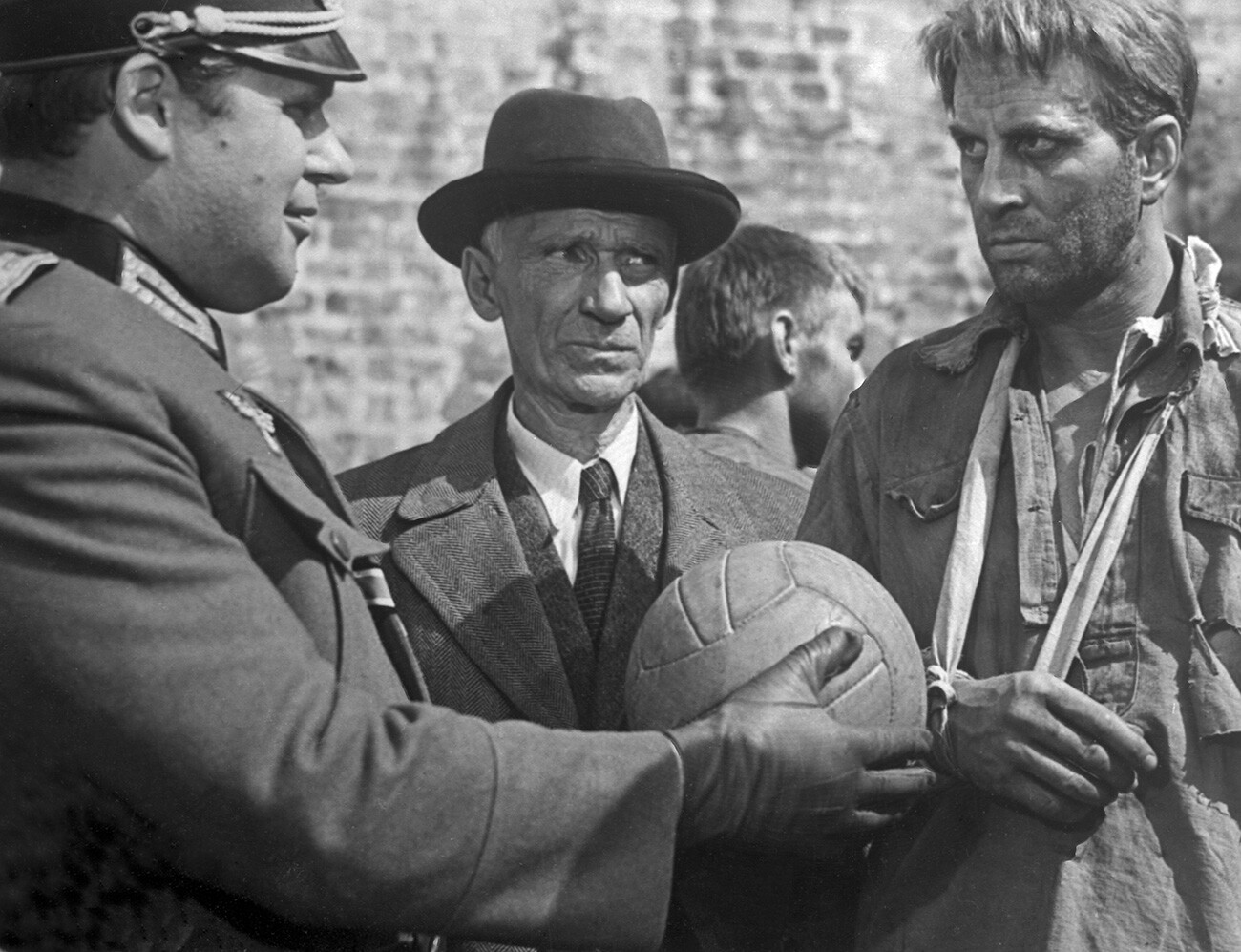
A still from the movie "The Third Half" (1962).
SputnikAccording to the Soviet version of events, before the game, a German officer came to the ‘Start’ dressing room and demanded that the team concede the match – otherwise a reckoning awaited the Soviet footballers. There is no official confirmation of this episode, however.
The referee was one Oberleutnant Erwin of the Wehrmacht, but no biased umpiring in favor of the German team was noted.
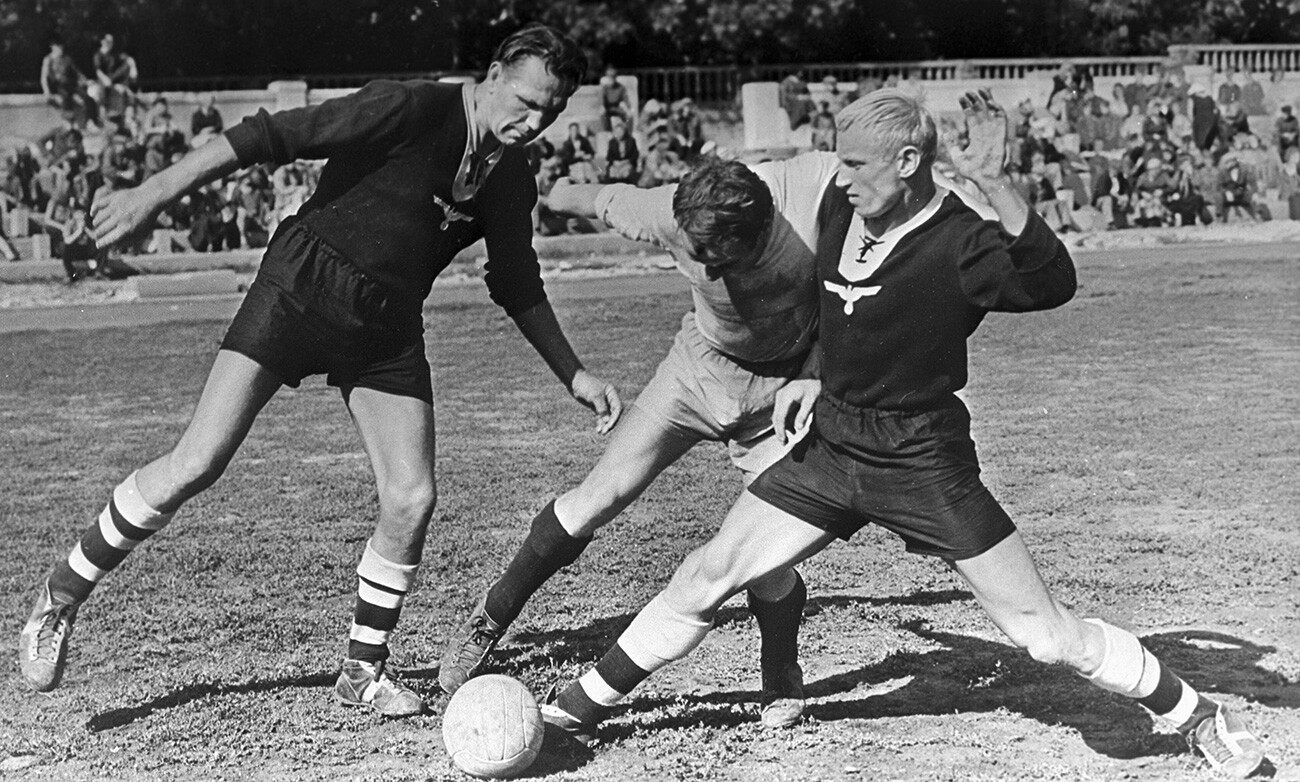
A still from the movie "The Third Half" (1962).
SputnikThe game was fiercely contested by the two sides and ended 5:3 in favor of ‘Start’. The teams posed for a joint photograph, after which the Soviet players headed for the dressing room to celebrate.
After the match, Friedrich Rogausch, the Stadtkommissar (city commissar) of Kiev, declared a ban on matches between Soviet and German teams. But, no sanctions against the members of the ‘Start’ football squad ensued.
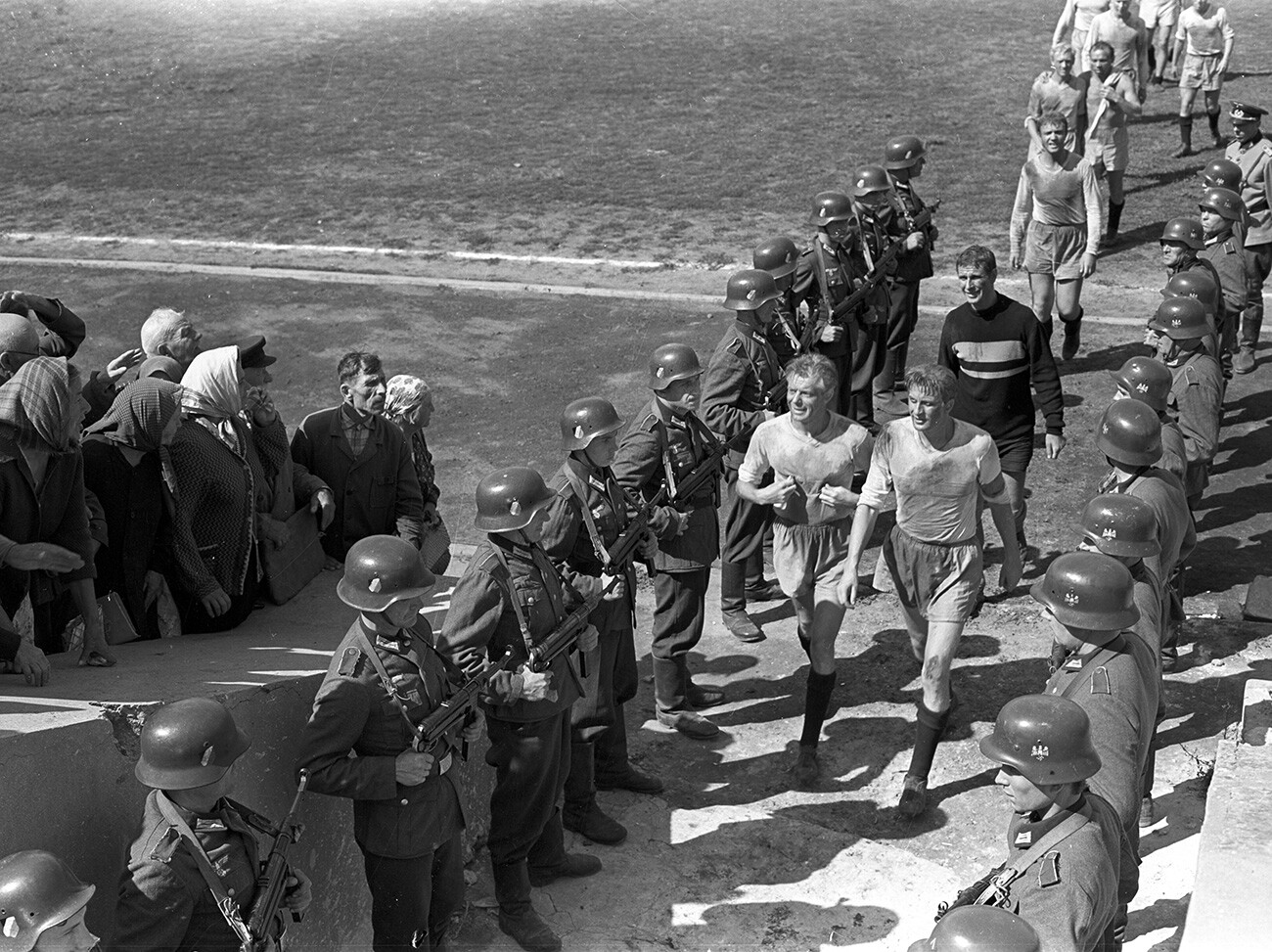
A still from the movie "The Third Half" (1962).
SputnikThey continued working at the bakery and, on August 16, they soundly defeated the ‘Rukh’ team made up of public employees and factory workers: The score was 8:0.
But, arrests of ‘Start’ players already began on August 18. The only ones detained, however, were those who had once been members of ‘Dynamo’ and they included Alexander Tkachenko, who had not been in the "deathmatch" team. Ten men were arrested in all. Former Lokomotiv Kiev players were either left alone or released.
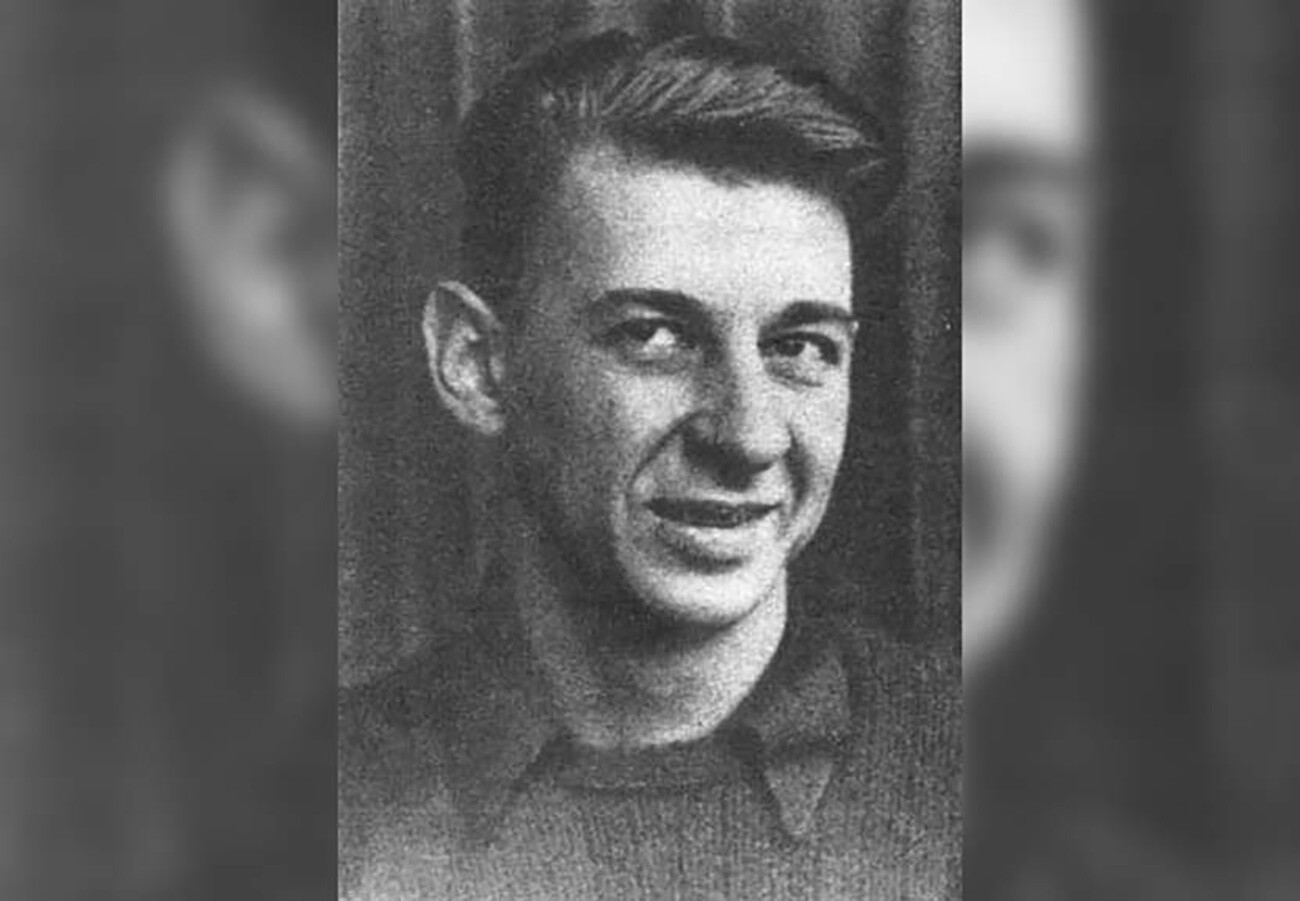
Nikolai Trusevich.
Public DomainThe main criteria for arrest was believed to have been membership to F.C. Dynamo Kiev, which was sponsored by the NKVD. The Gestapo believed that the Soviet footballers worked for the state security bodies and were either carrying out intelligence assignments in Kiev or conducting sabotage activities – such as mixing broken glass into the flour being supplied to German units.
Makar Goncharenko, one of the detainees, would later say: "We heartily thrashed ‘Rukh’, giving it to them good and proper – 8:0! This was on August 16. And then, Zhorka (Georgy) Shvetsov (who had organized ‘Rukh’) complained that we were breaching procedures, leading a carefree life and propagandizing Soviet sport. In a word, he grassed on us. The Germans checked pre-war posters to find out who in ‘Start’ had played for F.C. Dynamo Kiev and sent them to a prison camp."
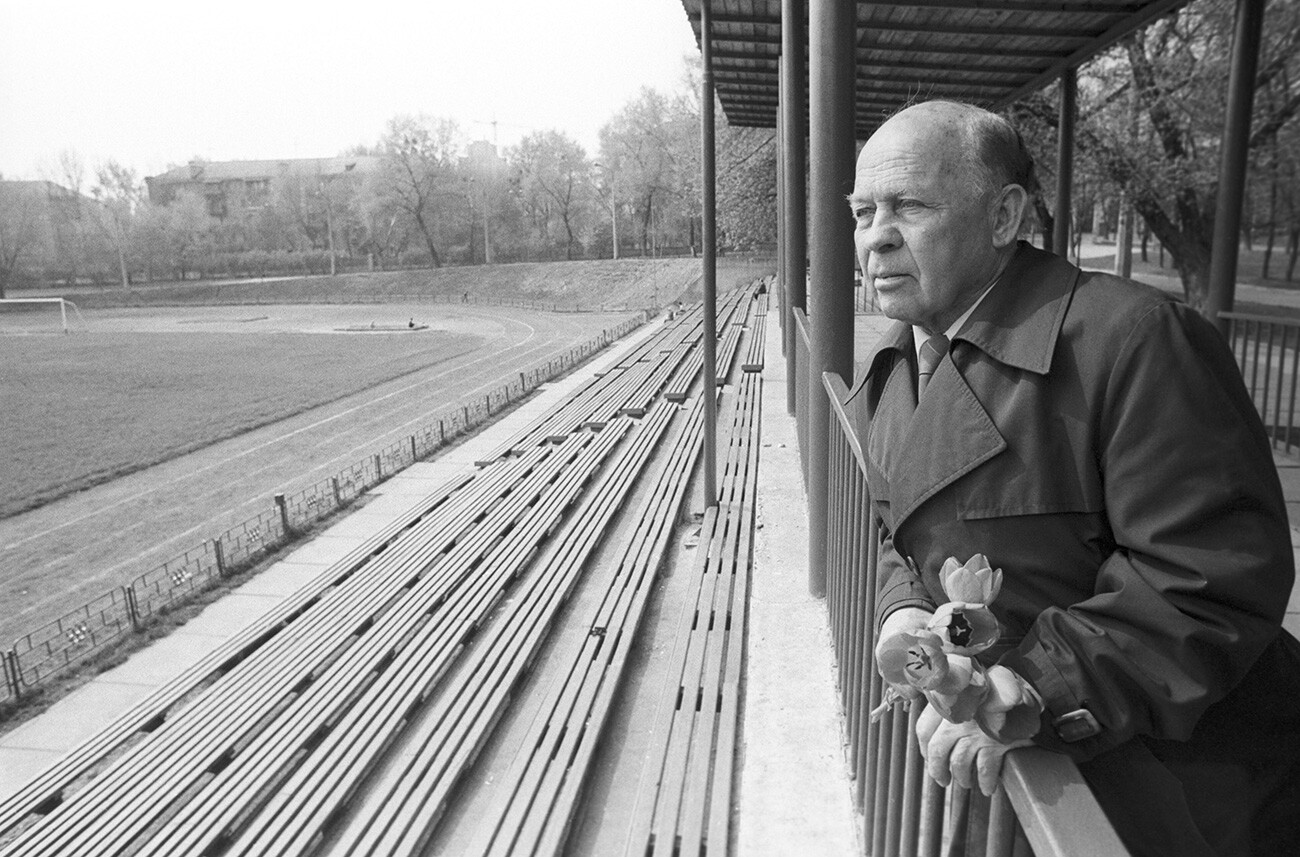
Makar Goncharenko, who played in the "death match".
MIkhail Chernichkin, Valery Solovyev/TASSNikolai Korotkikh really had worked in the NKVD in the early 1930s. He did not leave the Gestapo's torture chambers alive.
Alexander Tkachenko was shot dead in an escape attempt. Another eight were sent to the ‘Syrets’ concentration camp.
In the Winter of 1943, an incident took place at the camp in which the commandant's dog was harmed. A group of prisoners was shot as punishment and three of the ‘Start’ footballers turned out to be among them.
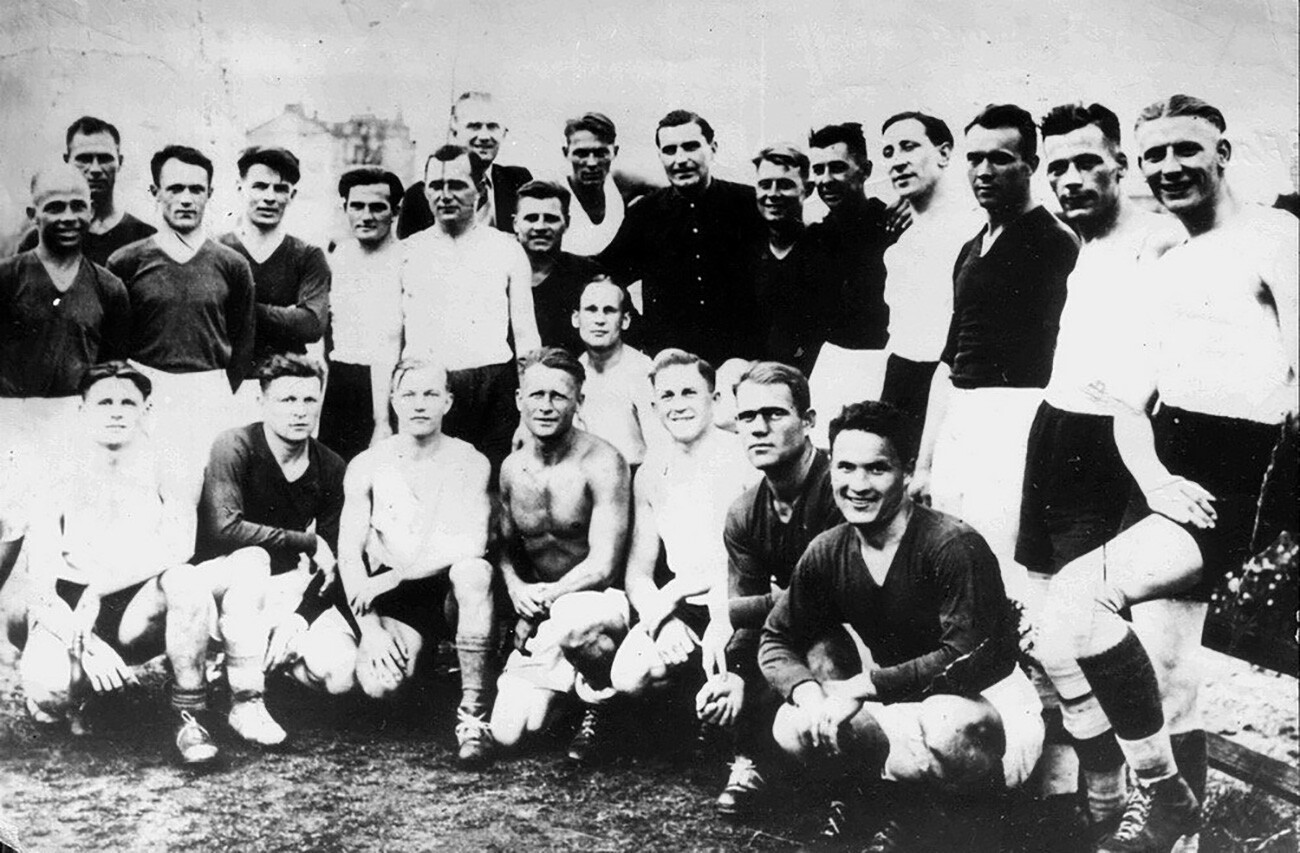
Joint photo of 'Start' and '‘Flakelf' teams.
Archive photoAnother four managed to flee at the approach of the Red Army, while Pavel Komarov was sent to work in Germany. After the end of hostilities, he moved to Canada.
And so, four of the 15 players involved in the "deathmatch" died, but their deaths were in no way connected with the result of the game against Flakelf on August 9, 1942. All the other players survived the war unscathed.
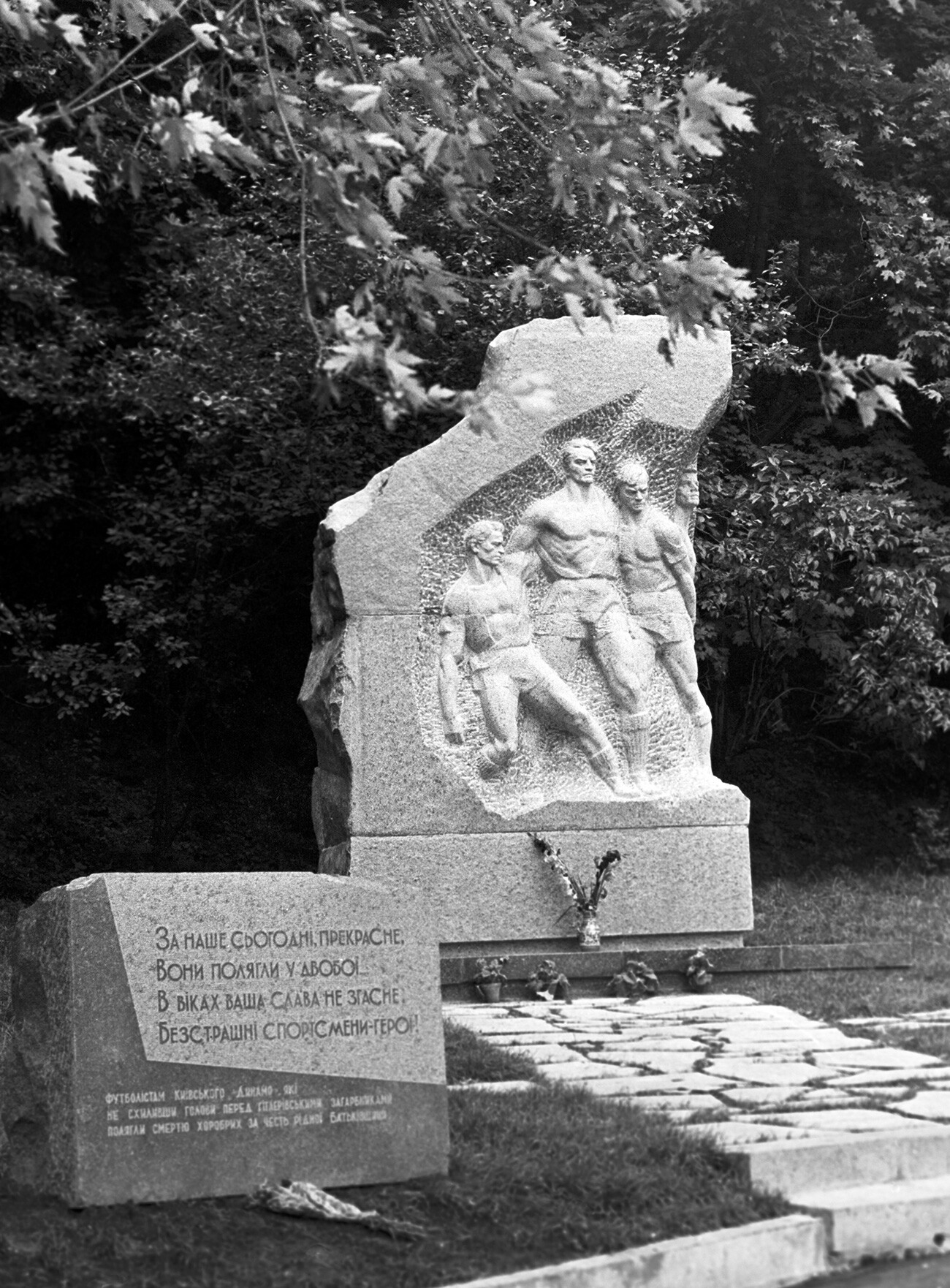
Monument to the players of F.C. Dynamo Kiev.
Y. Malishevsky/TASSThe legend of the heroic match was born as early as 1946 and, in subsequent years, it was embroidered with imaginative embellishments. In the USSR, the "deathmatch" became the subject of books and movies.
In 1965, those participants in the "deathmatch", who were no longer alive, were posthumously honored with the ‘For Courage’ medal, while the surviving players received ‘For Service in Battle’ medals. ‘Start’ players Georgy Timofeyev and Lev Gundarev got nothing at all, as, during the occupation, they had served in the police and, after the liberation of Kiev, received sentences of up to 10 years.
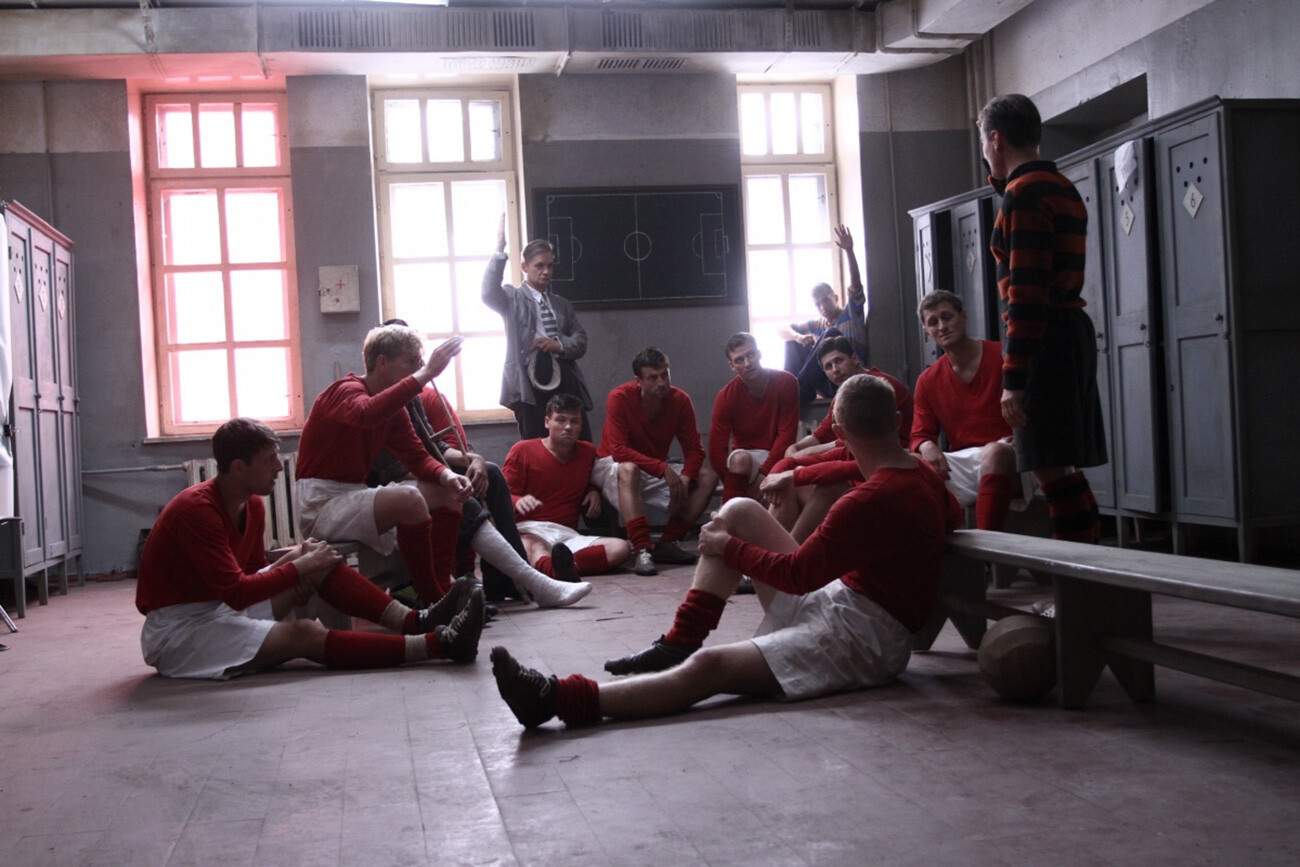
A still from the movie "The Match" (2012).
Andrey Malyukov/Rekun-cinema, 2012However, not everyone supported the heroization of these events. Thus, in 1971, KGB Major Udin wrote in a report to Col-Gen Fedorchuk, the chairman of the Ukrainian KGB, that "in the Motherland's difficult hour", the footballers had remained in the occupied territories and had given their support to "the initiative of traitors to the Motherland among the representatives of the municipal authorities" to set up football clubs.
"In the light of these facts," Udin noted, "everything that has hitherto been done to extol the former F.C. Dynamo Kiev footballers in the press and cinema seems to me profoundly mistaken".
If using any of Russia Beyond's content, partly or in full, always provide an active hyperlink to the original material.
Subscribe
to our newsletter!
Get the week's best stories straight to your inbox